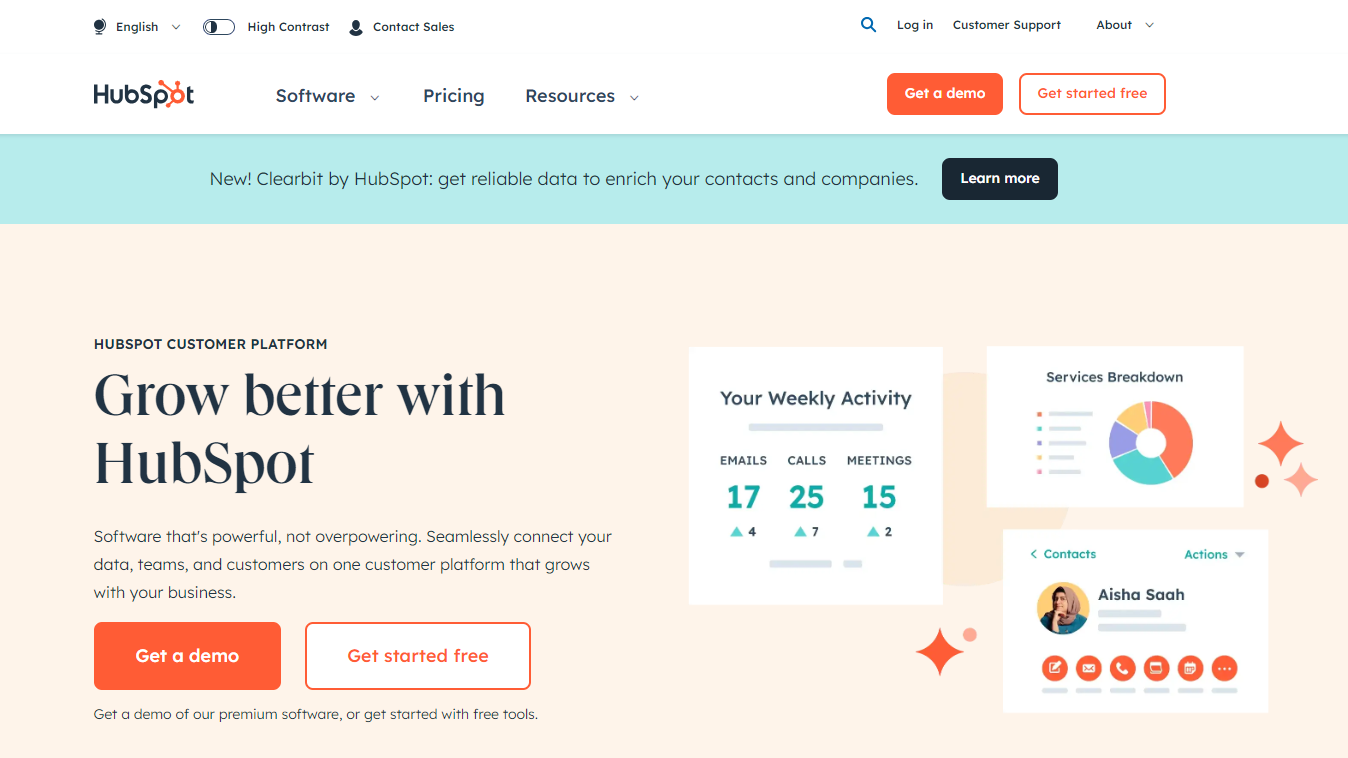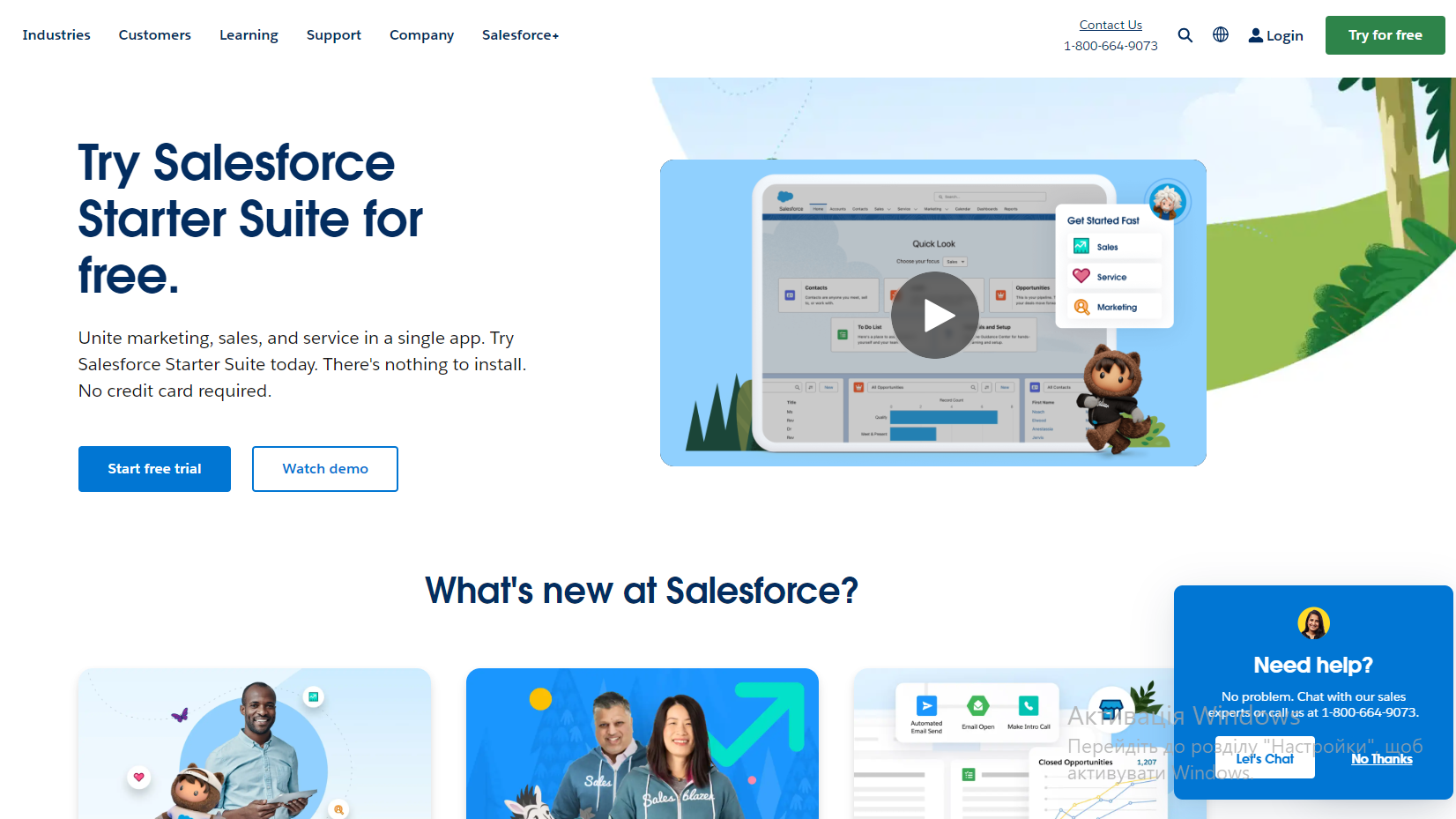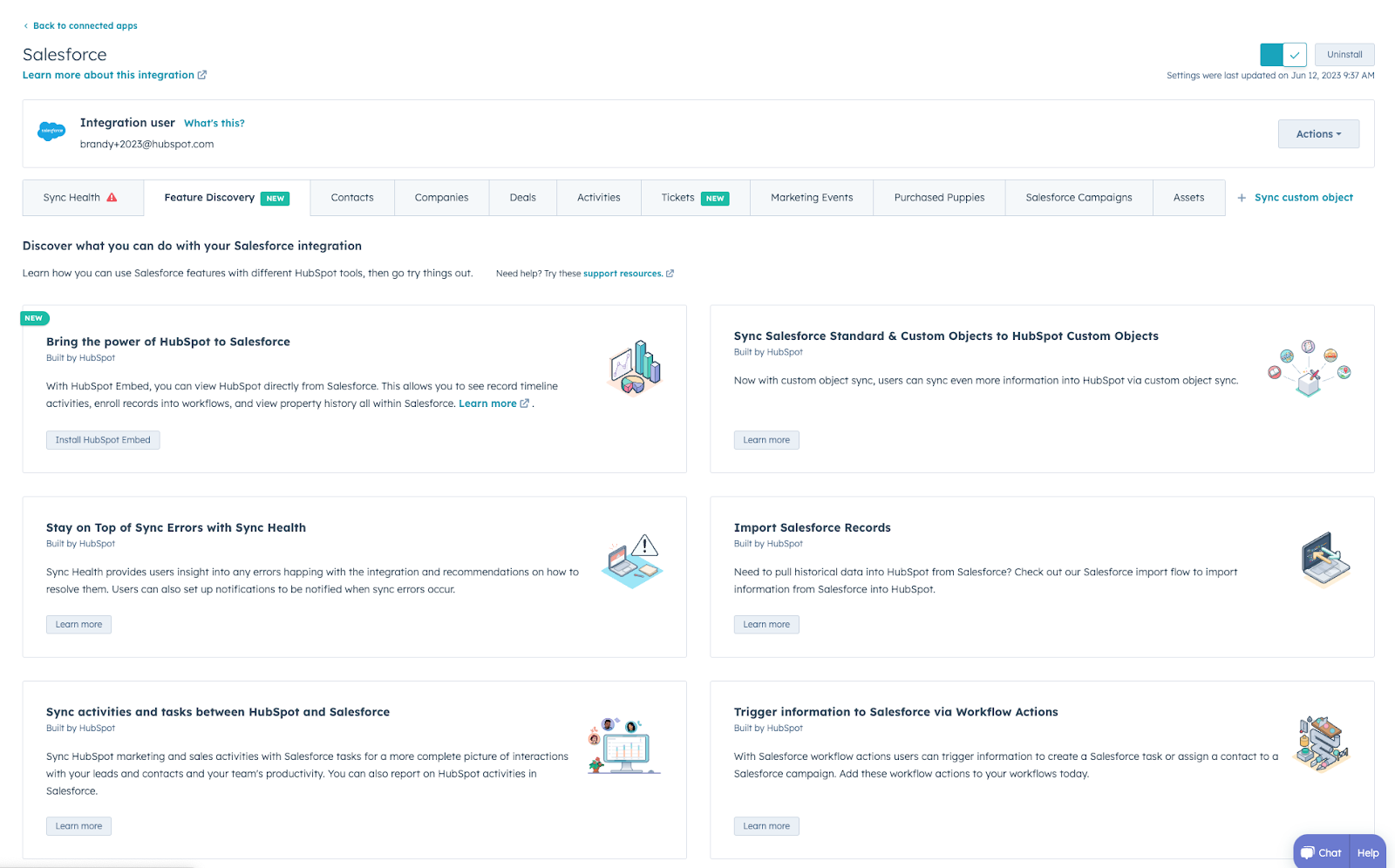Discover the key differences and similarities between HubSpot and Salesforce and learn how companies can benefit from integrating them.
Understanding HubSpot and Salesforce: An Introduction
HubSpot and Salesforce are two popular CRM platforms that offer a wide range of features and capabilities for small companies. While they have similar goals of helping businesses manage their customer relationships, they differ in terms of their approach and functionality.
HubSpot is known for its user-friendly interface and all-in-one approach. It offers a suite of tools for marketing, sales, and customer service, making it a comprehensive solution for small businesses. On the other hand, Salesforce is a more robust platform that caters to larger enterprises. It offers a plethora of features and customization options, allowing businesses to tailor the CRM to their specific needs.
Both HubSpot and Salesforce have their strengths and weaknesses, and the choice between the two ultimately depends on the unique requirements of a small company. Understanding their features and capabilities is crucial in making an informed decision.
Features and Capabilities: Unveiling the Power of HubSpot
HubSpot offers a range of features designed to streamline marketing, sales, and customer service processes. Its marketing hub allows businesses to create and manage email campaigns, social media content, and landing pages. It also provides analytics and reporting tools to track the performance of marketing efforts.

In terms of sales, HubSpot's CRM offers a comprehensive view of customer interactions and deals. It helps sales teams track leads, manage contacts, and automate tasks. The platform also integrates with popular email clients and provides a centralized inbox for efficient communication.
For customer service, HubSpot's service hub enables businesses to manage customer inquiries and support tickets. It offers a knowledge base for self-service support and provides tools for live chat and ticketing. Additionally, HubSpot's CRM integrates with other popular tools and platforms, allowing businesses to create a seamless workflow.
Features and Capabilities: Exploring the Potential of Salesforce
Salesforce is known for its extensive range of features and customization options. Its sales cloud offers tools for lead management, opportunity tracking, and sales forecasting. The platform also provides advanced analytics and reporting capabilities to help businesses gain insights into their sales performance.

In terms of marketing, Salesforce's marketing cloud offers features for email marketing, social media management, and campaign automation. It allows businesses to create personalized marketing campaigns and track their effectiveness. Additionally, Salesforce's marketing cloud integrates with other platforms to provide a holistic view of marketing efforts.
For customer service, Salesforce's service cloud provides tools for case management, knowledge base creation, and customer self-service. It also offers a platform for live chat and chatbot integration. Furthermore, Salesforce's CRM can be customized to fit specific business needs, making it a flexible solution for small companies.
Integration Process: How to Seamlessly Connect HubSpot and Salesforce
Integrating HubSpot and Salesforce can provide small companies with a powerful CRM system that combines the strengths of both platforms. The integration process involves several steps to ensure a seamless connection between the two systems.
First, businesses need to evaluate their data and determine what needs to be transferred between HubSpot and Salesforce. This includes customer contact information, lead data, and sales opportunities. It's essential to clean and organize the data before the integration to avoid any discrepancies.
Next, businesses can use integration tools or services to connect HubSpot and Salesforce. These tools provide a bridge between the two platforms, allowing data to flow freely between them. It's important to choose a reliable and secure integration solution to ensure data integrity and privacy.
HubSpot has its own HubSpot Salesforce Integration Tool so you can do it without technical setup. Sync all your relevant business data to HubSpot in just a few clicks, and get comprehensive insights into your customers and their interactions. Then, deliver personalized experiences that drive engagement and loyalty with your customer base by understanding their needs and preferences on a deeper level.

If you need any assistance with the integration process - contact Velainn: https://velainn.com/contact
Once the integration is set up, businesses should test the connection and ensure that data is being synchronized accurately. Regular monitoring and maintenance are required to keep the integration running smoothly.
Overall, integrating HubSpot and Salesforce requires careful planning and execution. It's important to involve IT professionals or consultants who are experienced in CRM integrations to ensure a successful implementation.
Benefits and Considerations: Choosing the Right Solution for Small Companies
When it comes to choosing between HubSpot and Salesforce for small companies, there are several factors to consider.
One of the key considerations is the budget. HubSpot offers more affordable pricing plans compared to Salesforce, making it a suitable choice for small businesses with limited resources. However, Salesforce's robust features and customization options may justify the higher cost for businesses that require advanced functionality.
Another factor to consider is the complexity of the CRM. HubSpot's user-friendly interface and all-in-one approach make it easier to navigate and manage for small companies. Salesforce, on the other hand, requires more technical expertise and customization to fully leverage its capabilities.
Integration capabilities are also important to consider. Both HubSpot and Salesforce offer integration options with other tools and platforms. However, businesses should evaluate their specific integration needs and ensure that the chosen CRM can seamlessly connect with their existing systems.
Lastly, scalability should be taken into account. As small companies grow, their CRM needs may evolve. Salesforce offers more scalability and flexibility in terms of customization and advanced features, making it a better choice for businesses with long-term growth plans.
In conclusion, integrating HubSpot and Salesforce can provide small companies with a powerful CRM solution. By understanding the features and capabilities of both platforms and considering the specific needs and constraints of the business, small companies can make an informed decision and choose the right CRM for their needs.
If you require any help with the integration process, please don't hesitate to contact Velainn.

